One of the things I hear the most when talking about sustainable travel is that it’s only accessible to the rich and that normal people can’t afford to travel sustainably.
Interestingly enough, I’ve been an advocate for responsible and sustainable travel for years now, but never considered myself a rich person.
Set in perspective, yes. I come from a fortunate part of the world where opportunities are enormous compared to other parts of the world. I’m very aware of that.
Yet, I never set foot in a luxury hotel. I just can’t allow myself to spend my entire trip’s budget on a night at a hotel where I probably won’t spend much time anyway.
But that seems to be the perception many people have about sustainable travel. Expensive luxury eco lodges.
But there’s so much more to sustainable travel than this.
To have a look at sustainable travel from a budget backpacker’s point of view, I thought it would be a remarkable idea to talk to one.
And not anyone.
I was super excited when none other than Matthew Kepnes, you might know him as Nomadic Matt – the king of budget travel wanted to chat about exactly this.
So let’s get to it and see what he thinks about sustainable travel on a budget and how you can do it too.
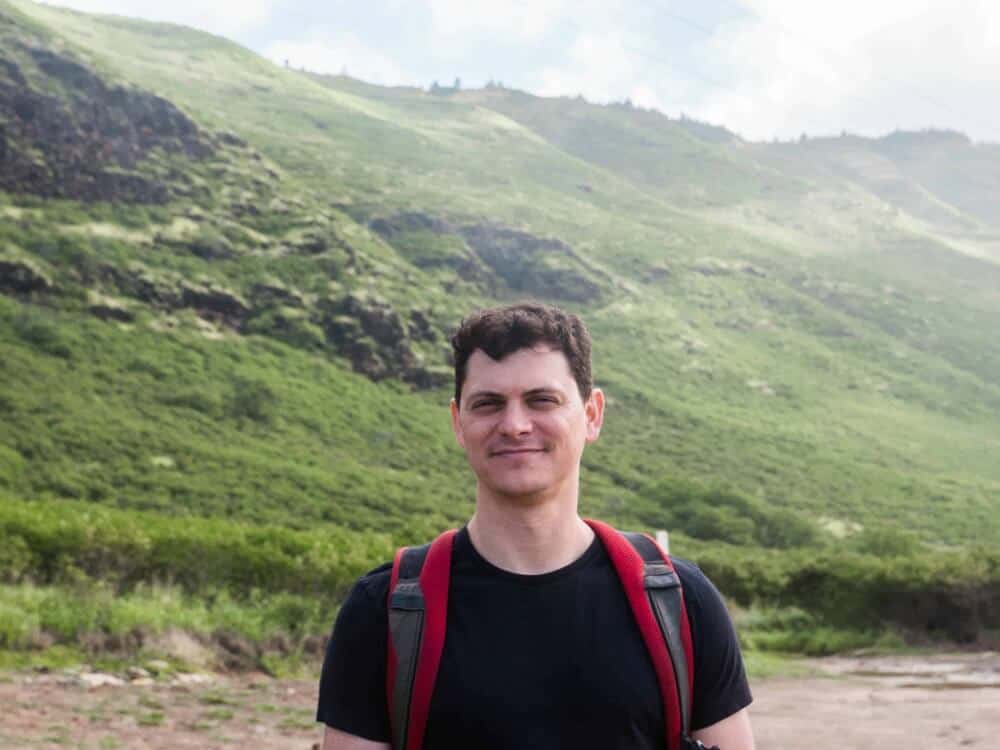
An interview with Nomadic Matt: Sustainable travel on a budget
Tell me a little about yourself and how you got into budget travel?
I didn’t go on my first real trip abroad until I was in my twenties. After a short trip to Costa Rica, I decided to visit Thailand with a friend. It was there that I met a group of long-term travelers in Chiang Mai. These were people not just on a short holiday like me but who were taking a gap year (or years) to see the world.
Growing up in America, that option had never even crossed my mind. I decided then and there that I wanted to travel long-term.
When I got home, I spent over a year saving up money before quitting my job to go on a round-the-world trip. Naturally, since I didn’t have a lot of money I had to be frugal. I slept in hostels, cooked cheap food, and learned how to backpack around the world on a budget.
And I’ve been doing that ever since!
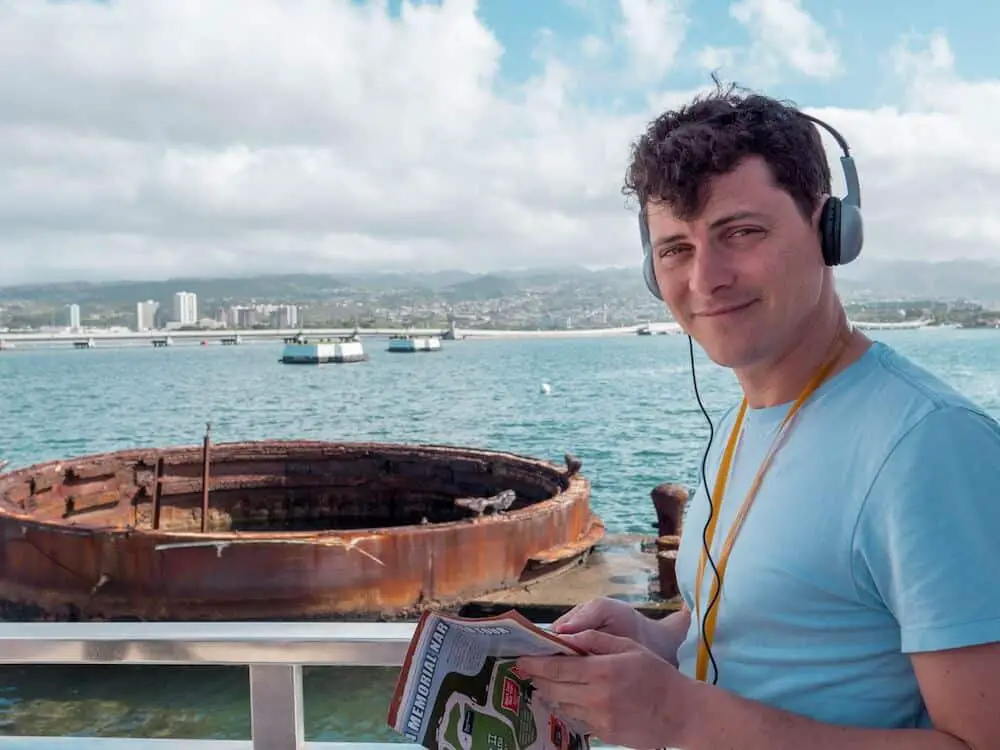
How do you help others to travel on a budget?
When people think about travel, they often think about luxury travel. Expensive resorts, luxurious over-water bungalows, overpriced flights, and cruises. They don’t realize that it’s actually possible to travel like you live. That is, cheaply.
I show people that affordable travel is possible and how they can shift their mindset to see how to make their travel dreams a reality.
From sharing money-saving tips to companies and apps that can improve your travels to teaching the basics of travel hacking, I show people exactly how I afford to travel full time.
With the right mindset and skills, almost anyone can live a life of travel. I just show them how to get started on the right foot.
When did you get conscious about sustainable travel?
I was always mindful of sustainable/responsible living, even before I left home, but until you see the consequences of overtourism, pollution, poverty, and overdevelopment yourself it’s hard to really understand it.
It really hit home for me on my early trips to Southeast Asia, and since then I’ve been trying to ensure my travels didn’t negatively impact the places I visit.
Fortunately, since I started backpacking, the industry has been slowly pivoting towards sustainable travel.
Progress is slow, but more and more people are mindful of the kinds of activities they do and the impact they have. We still have a lot to improve on, but I think the industry is shifting in the right direction.
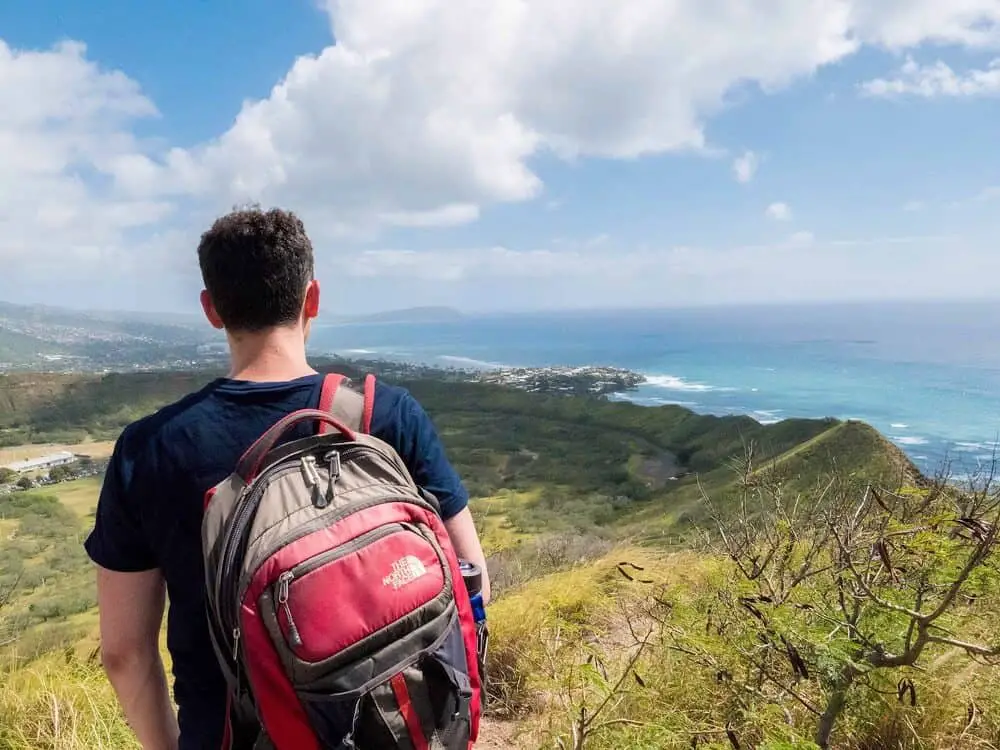
How do you think one can combine sustainable travel and budget travel?
It’s a lot easier to become a sustainable traveler than people think. In fact, budget travel often defaults to a more sustainable type of travel.
By sticking to local and seasonal foods, cooking your own meals, staying in low-impact accommodation (hostels vs hotels, for example), avoiding over-crowded destinations, and taking more bus and train trips (instead of flying), you can easily keep your environmental impact low while having a fun and affordable trip.
Are there any obstacles in thinking sustainability when you travel on a budget – and how can travelers overcome them?
I think the main obstacle is the lure of cheap flights (especially short flights, which are more environmentally damaging).
In Europe, for example, you can find flights for as little as $10 USD. If you’re on a tight budget (and short on time), that $10 flight is going to be much more appealing than a $75 train or a cheap 12-hour bus ride.
Fortunately, many regions of the world are heavily investing in train travel, so in the coming years, I think there will be far more affordable train options available to help combat the spread of cheap flights.
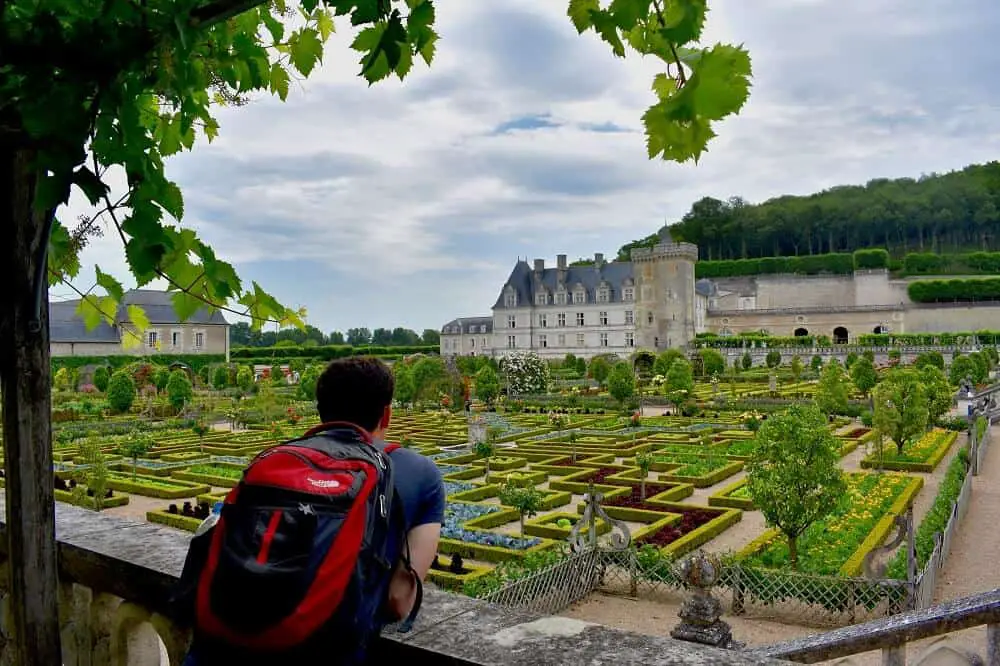
Have you been to any specifically budget-friendly sustainable countries?
Generally speaking, the more focused a country is on the outdoors, the more focused that country (and its people) are on sustainable travel/living.
Unfortunately, these are usually the more expensive countries.
The Nordic countries, for example, prioritize the outdoors and have strong environmental protections that go hand-in-hand with sustainable travel.
Germany, Switzerland, and Japan all also have a strong focus on the outdoors and environmental responsibility being highly sustainable tourism destinations.
However, none of them are particularly cheap — though you can definitely visit them all without breaking the bank if you stick to free outdoor activities, cook your own food, and cut back on your excursions.
How do you think budget travelers can make a positive impact on the society in their destination?
I think the first thing travelers need to do is be respectful of local laws and customs. By fitting in and showing respect (and maybe learning a few words or phrases), you’ll not only be welcomed by locals but you’ll leave a positive impression on those you meet.
From there, I think there are numerous ways to help support the places you visit, ranging from shopping at locally-owned businesses to volunteering.
There are tons of websites that can help you find volunteer opportunities, including:
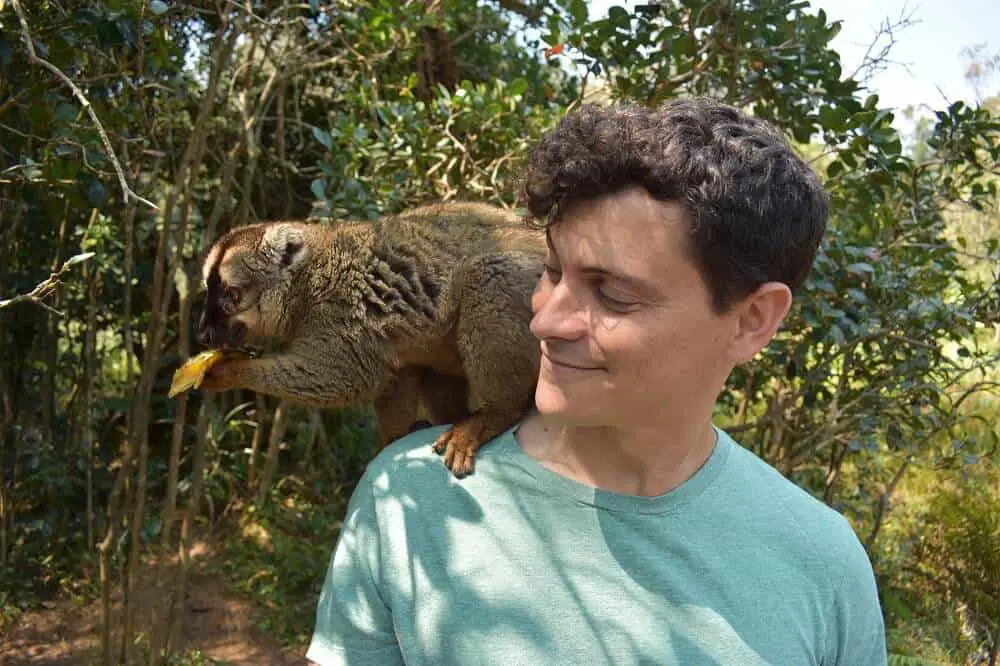
What are the top 3 things you see travelers do that they should avoid doing to create a better future of travel?
- They travel fast – The more you rush around, the greater your environmental footprint is going to be (and the less you are actually going to remember). More flights and transportation, more eating out instead of cooking your own meals, more overcrowding. By rushing from place to place you not only increase your carbon footprint but you also make it impossible for you to give back to the communities you visit. So slow down!
- They visit the same spots – The majority of travelers all visit the same spots. They flock to the same popular cities, snap photos at the same sights, eat at the same tourist trap restaurants. While I know many of these popular destinations are popular for a reason, overtourism is leading to all kinds of problems for locals and the environment. Instead of visiting the same old places, get off the beaten path and go somewhere new and less visited. You’ll beat the crowds, save money, and have a much more authentic experience.
- They spend too much time on their phones – While phones are a useful tool for traveling, all too often I see travelers spending every waking minute on their phone. They’re constantly posting on Instagram and Tweeting about every meal. They’re living in their phone instead of actually enjoying the destination. While photos are important souvenirs, try to put the phone away unless you need it. Need directions? Ask a local. Not sure where to eat? Talk to your hotel/hostel staff and get their input. You don’t need to use your phone for everything!
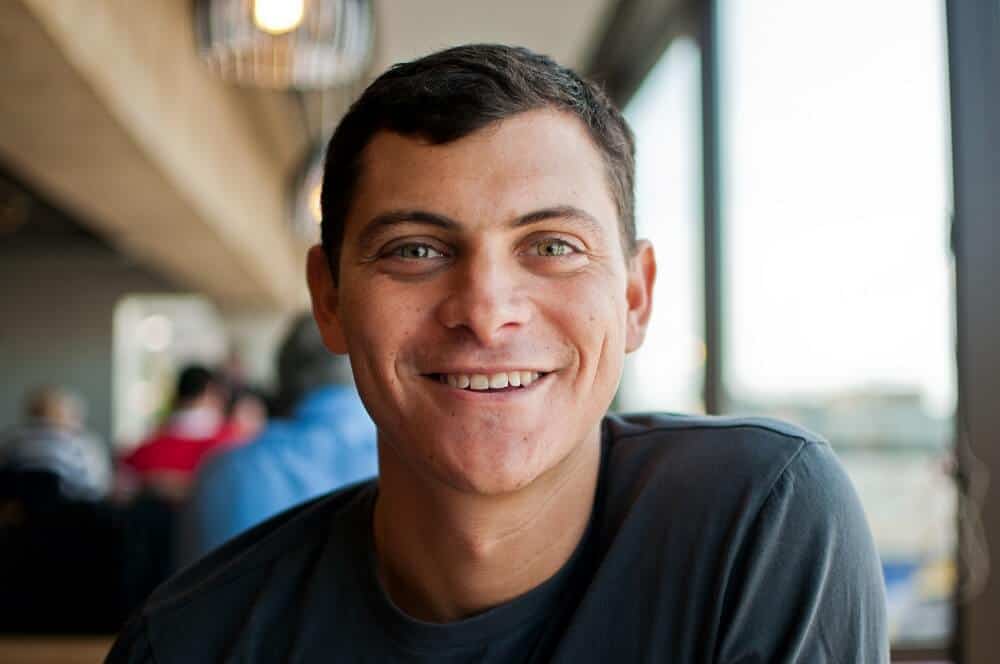
What are your top 3 tips for anyone that wants to incorporate sustainable travel in their adventures but don’t have a fat wallet?
- Aim for quality, not quantity – Nobody cares how many countries you’ve been to, so aim for deeper travels — not faster ones. Consider volunteering or doing a homestay so you can learn more about the places you visit and connect with the locals who live there. Traveling isn’t just about us, it’s about the places we visit and the connections we make. Slow down and deepen your travels. You won’t regret it.
- Stick to local/seasonal food – While it might be tempting to only eat foods you are familiar with, the more local and seasonal food you eat while you travel, the lower your impact will be on the climate and environment. Additionally, cut back on eating meat (especially fast food). That alone can significantly lower your carbon footprint.
- Enjoy the outdoors – In much of the world, nature is free. Hiking trails, beaches, mountains, and even camping can be done without spending a penny. Embrace Mother Nature and you’ll be able to explore the world without going broke.
What are your thoughts on the future of travel?
I’m optimistic about 2022. More and more of the world is getting vaccinated, proper safety protocols have been put in place, travel insurance companies now cover COVID/quarantine, and many people are ready to get out there and travel responsibly. While we will no doubt see more variants, I think the worst of lockdown is behind us.
I also think we are going to see a greater focus on sustainable and responsible tourism. Destinations across the globe are shifting focus as they rebuild their tourism industry so I’m hopeful that the days of mindless overtourism are behind us.
See more of Nomadic Matt
It’s quite inspiring to see a leader in the travel blogger industry be so conscious about sustainable travel. If you want to see more from Nomadic Matt and get hold of invaluable budget travel tips, make sure you check out his blog and follow him on Instagram.
If you didn’t know, Nomadic Matt was my first mentor when I started travel blogging back in 2017 and while I’ve had a lot of mentors since then, I would never have managed to build Brainy Backpackers (or any of my other blogs) without his and his team’s support.
It’s been a great opportunity chatting with him about a topic that’s so close to my heart and I hope you got a handful of great takeaways to implement on your future travels to make them more sustainable!
